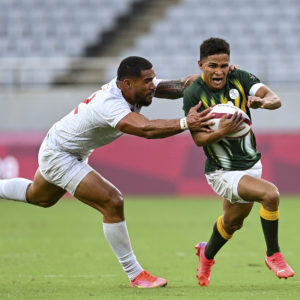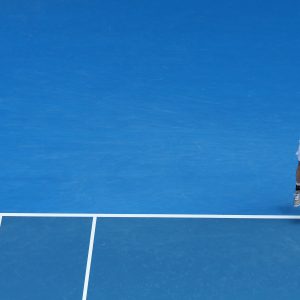Phathokuhle Zondi’s many sporting hats
The sports doc approaches her role of caring for athletes with passion and enjoys what she says is a privileged journey despite the race and gender challenges she has been forced to overcome.
Author:
13 October 2021
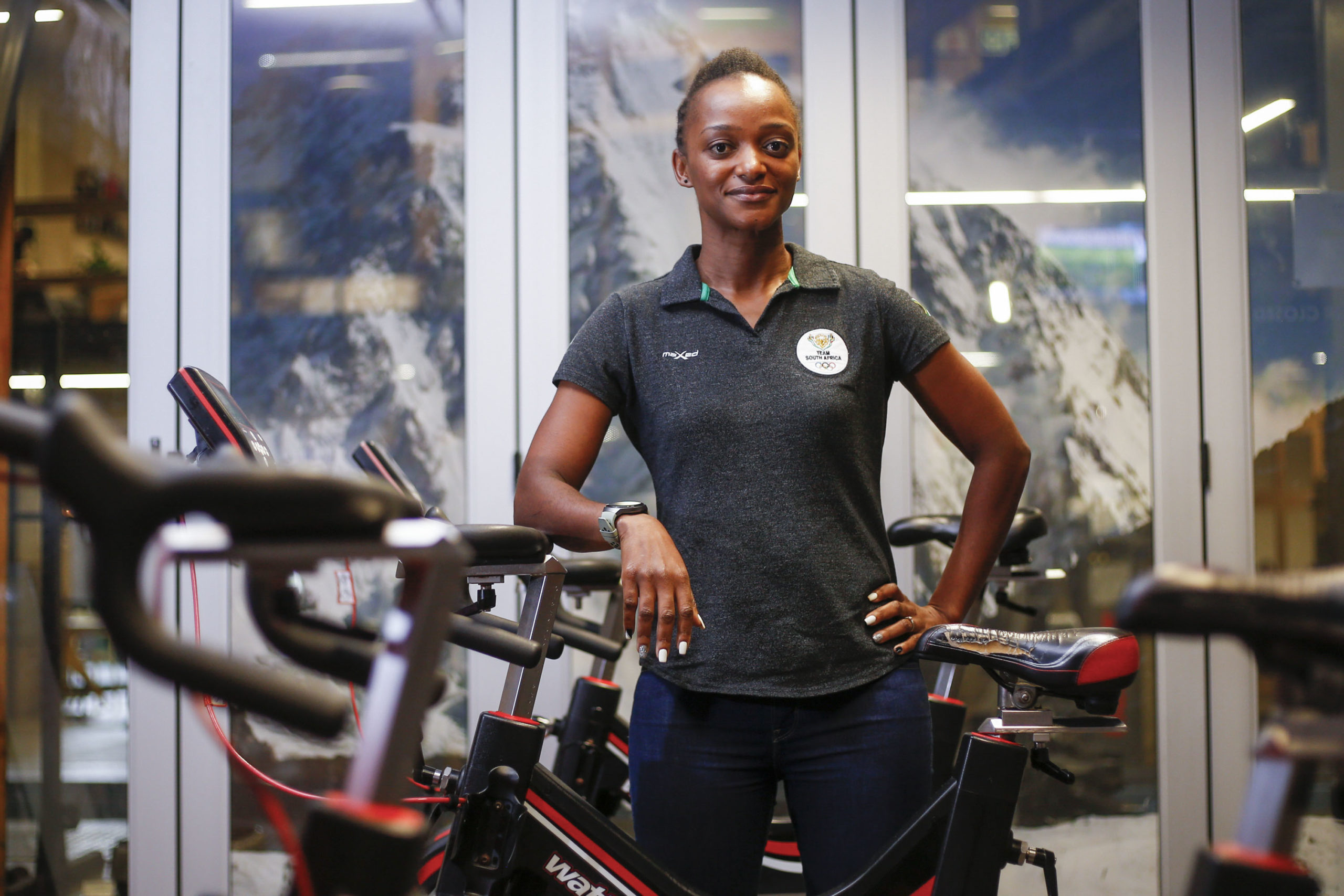
There’s a photo that Phathokuhle Zondi posted on social media on 4 September which perfectly captures her life. In it she is working out on an indoor training bike with one of her daughters in her arms and a tablet on the table in front of her, mid-meeting.
This is an image of the juggling act she performs on a daily basis. Zondi was Team South Africa’s chief medical officer at the Olympic Games in Tokyo. She consults in clinical sports medicine, serves on many boards and commissions, is an associate editor of the British Journal of Sports Medicine and is widely regarded as one of the best in the business. Just a few months ago, Zondi founded Colour Africa’s Outdoors, a movement to diversify outdoor recreational activity and encourage South Africans to get outside and be active.
The list goes on. To top it all, she’s a mother to two young children and an avid mountain biker and runner.
Under normal circumstances, the role of chief medical officer to an Olympic team is a massive task. But throw a global pandemic into the mix and it becomes way more complicated. With the benefit of hindsight, Zondi describes the experience with mixed emotions. “It was a very challenging time, but a very meaningful time as well. I think I would use those two words to describe it.
“Challenging, obviously, because of Covid and the month preceding the Games ensuring that all the processes were in place … that the whole team understood what they had to do to comply,” she says.
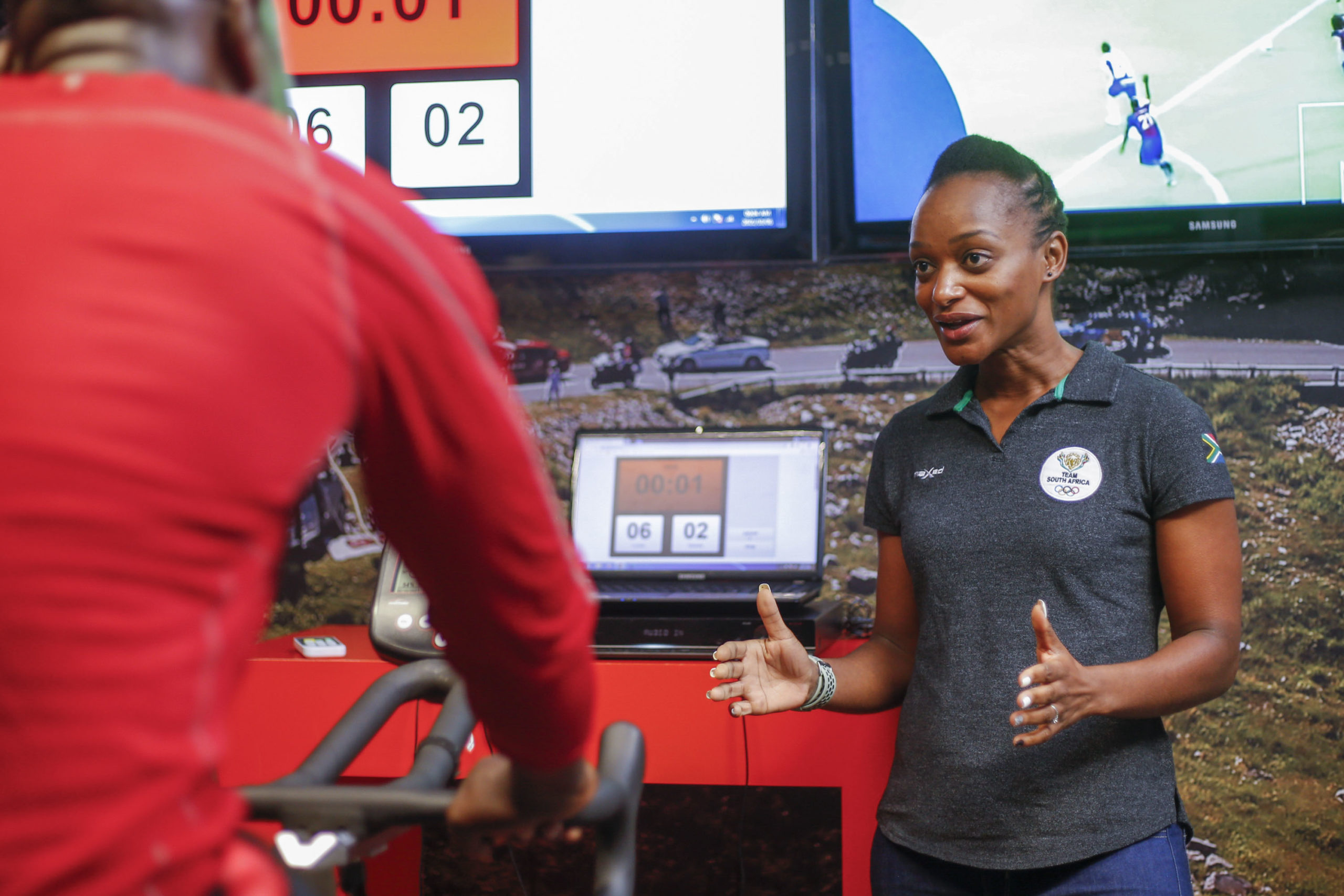
“That was quite hectic, just getting people into the country. And of course, once they were there, then the meaningful part came. I must be honest, there was a sense of purpose. It was sort of like you’ve been placed here for a reason and no matter how hard it is, you’re the person for the job, so figure it out.”
The Tokyo Games had already been postponed from 2020 and many questioned the wisdom of the sporting spectacle going ahead a year later, given the risk.
“Before I left and when I was still in the depths of Covid planning, I told myself I really hope that at the end of this it will be worth it, us having staged a relatively elite event in the middle of a pandemic and having to navigate so many barriers. And now that I’m on this side of it, I can honestly say I do feel it was worth it, not just for the athletes to have participated and obviously been through quite a journey to get there, but also if I consider the global response to the Games and what it seemed to ignite in the people who were watching,” says Zondi.
“If I consider how the Games were delivered and that it wasn’t just about the performances, but the profile of the journey of the athletes. There was a lot of awareness brought about by a lot of things, like matters related to female athletes, matters related to mental wellbeing and mental health, matters related to inclusion, and these matters were discussed using the platform of Tokyo 2020. That was particularly profound and meaningful for me.”
Emotionally invested
The hectic day-to-day pace of the Athlete’s Village didn’t allow time for such reflection during the Games, though. Zondi headed up a team of 19 medical staff: six doctors, 12 physiotherapists and a sports psychologist.
Each member of the medical staff was assigned various sporting codes and teams. Among the teams Zondi looked after was the rugby sevens squad, who would probably rather forget their time in Tokyo. Arriving in the Japanese capital with high hopes of improving on their bronze medal from Rio five years earlier, the team were struck down with several positive cases of Covid-19.
“The team had a significant number of people who had to be quarantined or isolated, and therefore they couldn’t train once we got there as they would typically have trained.
“All of these athletes had to be in single rooms, isolated, only be in their rooms, meals had to be brought to them. They could only leave their rooms to go to training once that was cleared. And even then at training there were strict protocols that were put in place,” says Zondi, explaining that this setup was overseen by the team management, who ensured daily activities were planned and nobody felt completely isolated.
“In terms of ultimate performance, I think in this type of scenario you can never say that if they hadn’t been in quarantine, they wouldn’t have been knocked out when they did [in the quarterfinal against Argentina], because it’s essentially Test match rugby, which means anything can happen on the day.
Related article:
“But I think, without a doubt, there were certainly emotions … there certainly was impact on the mental wellbeing and to some extent physical preparedness once they arrived in Tokyo.”
Zondi says that becoming emotionally affected by the athletes and their journeys is inevitable in the role of team doctor.
“Our role is to be the support staff. We are there to do what we can, to safely get the athletes to the starting line, on the field or the starting blocks, whatever it may be. And you do – you become emotionally invested in that process.
“By the time they get to the start line, you’ve had so many conversations and engagements that you know how much this means to them.
“Everyone knows there can only be three medallists. But you know how much they have sacrificed, how much they have committed, how much they have overcome to get to that starting point. So, you are incredibly disappointed, mostly for the athletes and for whatever they feel they have lost out on.”
A sporting family
This isn’t the first time Zondi has been part of Team South Africa at a major sporting event. She was also on the medical team at the London Olympics in 2012 and the Rio Paralympics four years later. She has also been part of Commonwealth Games teams, Youth Olympics and others. That’s over and above her experience working with the Bulls, junior Springboks and several other teams, and serving as chief executive of the Sports Science Institute of South Africa for four years.
Zondi knew early on that she wanted to be involved in sports. “I was raised in a family where physical activity was a culture and lifestyle. My dad ran Comrades, he was very active as a tennis player as well in his youth, as was my mother. She was an avid athlete. In the apartheid era she was a KZN [KwaZulu-Natal, then Natal] provincial athlete and probably could have gone national if circumstances would have allowed.
Related article:
“So that was passed on to us in terms of genes and an appetite for physical activity as kids, and in terms of things we did on a weekend,” she says.
“So, throughout primary school and high school, I was very active and involved in as many sports as I could be involved in. And it was only natural, therefore, when I was looking for career options or varsity options to study, I wanted sport to be part of it.
“I have always been interested in medicine and there was an interview I heard in 1999 when I was in standard nine [grade 11]. I overheard an interview with Tim Noakes and it was the first time I heard about sports medicine. It was a eureka moment, like, that’s what I am going to do. And so I did.
“It’s been such a passion-filled and privileged journey, and I’ve really enjoyed every aspect of it.”
Prejudice and sexism
Zondi’s journey hasn’t always been straightforward or smooth, though. Being a Black woman doctor in largely male-dominated sporting environments has thrown up many challenges.
While working as a team doctor, Zondi would “always be accompanied by one of my managers for some of the admin stuff in the background” when she took an injured rugby player to hospital. “And I don’t know how many times doctors would come back to report or give feedback, but direct the feedback to the white male manager next to me, regardless of the fact that I had announced myself as a doctor and had also given the information they needed to conduct their investigations. Small little things like that.
“Some of it is conscious bias and some subconscious bias, which I recognise. But the important thing was having people who were enlightened working alongside me, because those managers very quickly picked up what was happening and learned to interrupt the person and say: ‘I am sure you are meaning to direct this to Dr Zondi.’ It was a great and subtle way to start to shift things without necessarily fighting people.”
She experienced similar attitudes from some players, who sought second opinions from their general practitioners despite Zondi – their specialised sports medicine physician – having already diagnosed them. They would soon return to tell her she was correct.
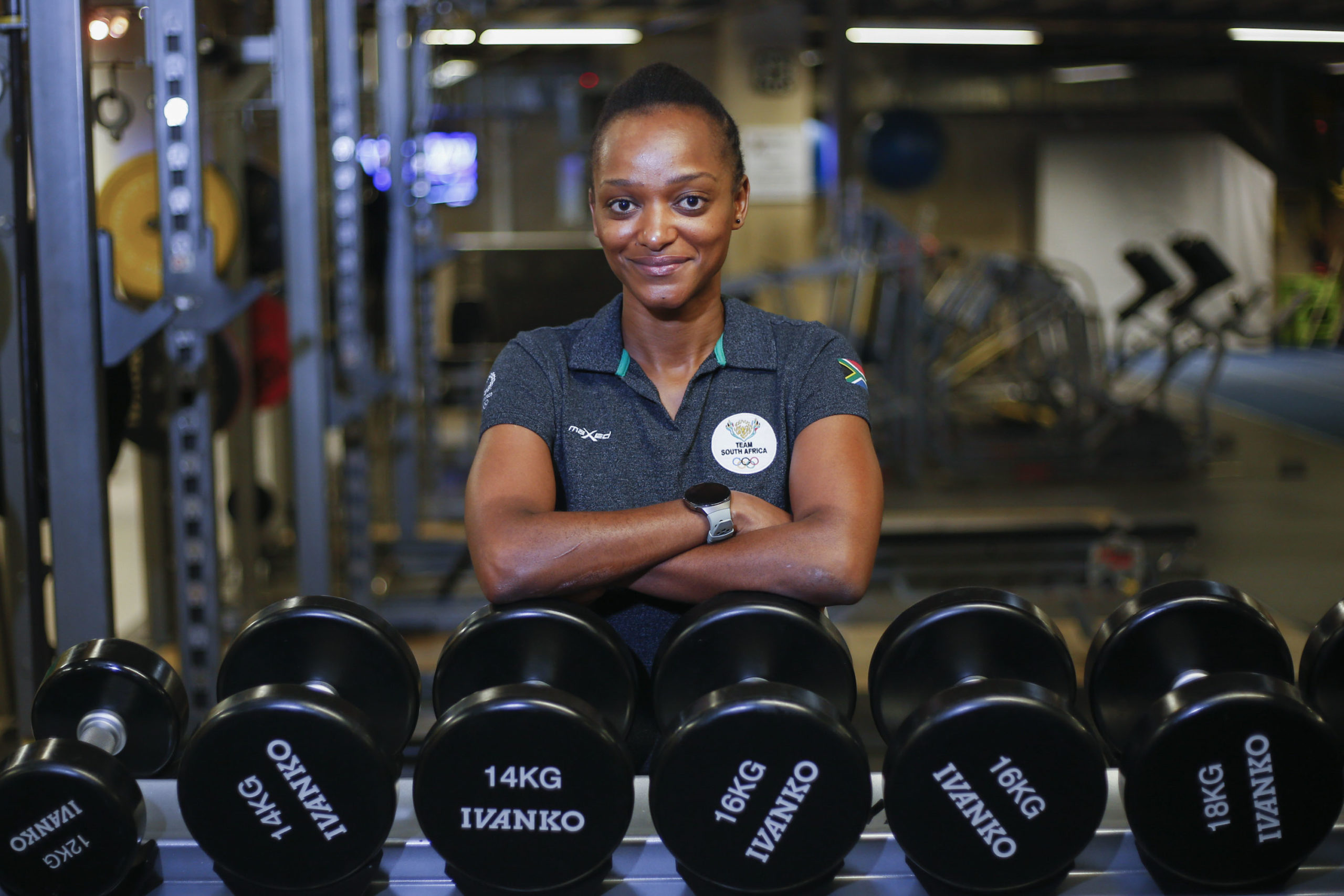
“Until that time, they had perhaps never been treated by a Black doctor, let alone a Black female doctor, just because of the environment some of the athletes came from – small towns, Afrikaans dorpies – and so there was a sense of uncertainty when they engaged with me,” she says.
“That again wasn’t about fighting with the athlete, because trust is also earned. As much as it irritated me at times, I also learned to realise that they would realise with time that I do know what I am doing, and it will shift.
“And let me just be clear, that was not all the athletes. And it’s something I don’t take personally. It’s based on experiences, it’s based on what they know outside of me and not on what they know about me.
“Once they started to know me and see that I was very competent, that changed. The coaching staff also had full confidence in me and always backed me.”
Picking battles
It is this support from the teams she has worked in, together with her patience in dealing with others’ prejudices, that has made all the difference.
“I often say with those experiences, they really were quite integral, they were quite important in the way I developed as an individual and as a professional. They did teach me resilience and patience. I learned quickly that you must decide what you are fighting.
“I can fight and tell them to trust me and believe me, but that’s not what’s going to make them believe me. Let them go to the doctor who will see what I saw, because I know that I am right, and then come back to me and then I’ll say: ‘I am really glad that you went for that opinion. That made you feel comfortable. So, can we carry on now?’ And that brings them on side, rather than turning them against you.
Related article:
“It also taught me how to work in a team, seeing how some of my white, male colleagues reacted to some of these situations. It taught me the importance of having allies, but there were also many times I had to speak up for myself … It taught me to stand tall and when and how to fight battles.”
Those battles and the incredible drive, passion and work ethic they have developed in her are what have seen Zondi rise to the top of her profession and taken her around the world. They have earned her the respect of her peers and athletes. And the admiration of her two young daughters, who have the best possible role model on that indoor trainer, tablet in hand, to one day emulate.

